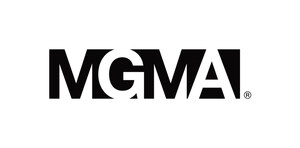WASHINGTON, Oct. 26, 2021 /PRNewswire/ -- The Medical Group Management Association (MGMA) today released its 2021 Annual Regulatory Burden Report. With responses from 420 medical group practices, survey findings included within the report reveal the true impact of federal regulations on the U.S. healthcare system. MGMA's Government Affairs team uses this critical data to inform Congress and the Administration about the obstacles faced by medical practices to delivering high-quality patient care.
An overwhelming majority (91%) of respondents reported that the overall regulatory burden on their medical practice has increased over the past 12 months. Even more respondents (95%) agreed a reduction in regulatory burden would allow their practice to reallocate resources toward patient care. Prior authorization requirements once again ranked as the top burden for medical practices with Medicare's Quality Payment Program (QPP) and COVID-19 workplace mandates tying for second.
"Medical practices continue to report an increase in regulatory burden, with challenges associated with the COVID-19 pandemic further compounding the issue," said Anders Gilberg, Senior Vice President of Government Affairs at MGMA. "Practices are currently experiencing unprecedented shortages of clinical and administrative staff, yet the federal government continues to add layer upon layer of new regulatory requirements. Medical groups are reporting that there are barely enough nurses to take care of patients, let alone spend time navigating onerous prior authorization requirements or reporting clinically irrelevant quality measures to Medicare. Regulatory burden is diverting precious resources away from patient care."
Medical groups continue to face growing challenges with prior authorization, including issues submitting documentation through non-standardized health plan web portals, as well as changing medical necessity requirements and appeals processes. As one respondent noted, "The requirements and inconsistencies have repeatedly delayed care and have forced us to hire additional staff simply to keep up with the ever-changing prior authorization environment."
Of the 73% of respondents that participate in the Merit-based Incentive Payment System (MIPS) as part of the QPP, 93% reported that MIPS payment adjustments do not cover the costs of time and resources spent preparing for and reporting under the program.
Not only is MIPS lacking in ROI, but 79% of respondents reported that Centers for Medicare and Medicaid Services' (CMS) implementation of value-based payment policies has increased the regulatory burden on their practice. Roughly 90% of respondents noted that CMS' feedback on MIPS cost and quality measure performance is not useful in reducing costs or improving clinical outcomes. MIPS was intended as a bridge to help practices move into more comprehensive alternative payment arrangements in Medicare, but progress has been slow.
"MGMA's survey results indicate that most medical groups share CMS' vision of transitioning into value-based care arrangements," said Gilberg. "Unfortunately, 80% of respondents reported that there was not an alternative payment model [APM] clinically relevant to their practice. We urge CMS to collaborate with stakeholders in the development of an APM portfolio that meaningfully addresses and transforms patient care."
The full 2021 Annual Regulatory Burden Report may be viewed here.
About MGMA:
Founded in 1926, the Medical Group Management Association (MGMA) is the nation's largest association focused on the business of medical practice management. MGMA consists of 15,000 group medical practices ranging from small private medical practices to large national health systems representing more than 350,000 physicians. MGMA helps nearly 60,000 medical practice leaders and the healthcare community solve the business challenges of running practices so that they can focus on providing outstanding patient care. Specifically, MGMA helps its members innovate and improve profitability and financial sustainability, and it provides the gold standard on industry benchmarks such as physician compensation. The association also advocates extensively on its members' behalf on national regulatory and policy issues. To learn more, go to MGMA.com or follow us on LinkedIn, Twitter and Facebook.
Media Contact:
Emily Dowsett
Associate Director, Public Affairs
703-376-1134
[email protected]
SOURCE Medical Group Management Association

Related Links
WANT YOUR COMPANY'S NEWS FEATURED ON PRNEWSWIRE.COM?
Newsrooms &
Influencers
Digital Media
Outlets
Journalists
Opted In



Share this article